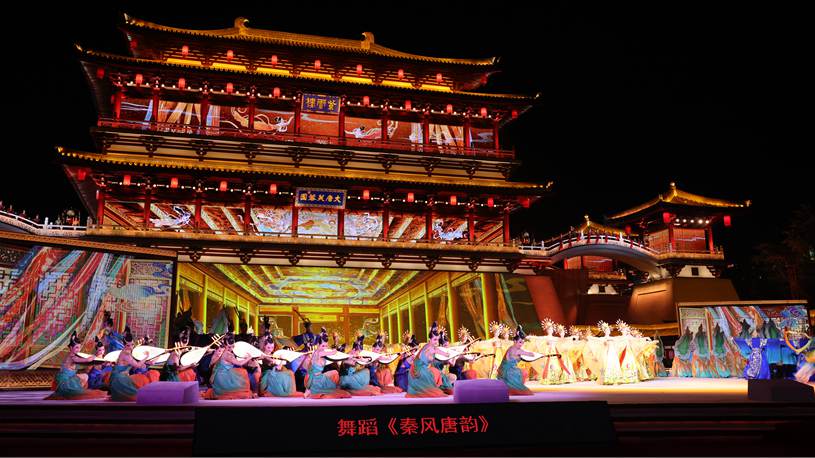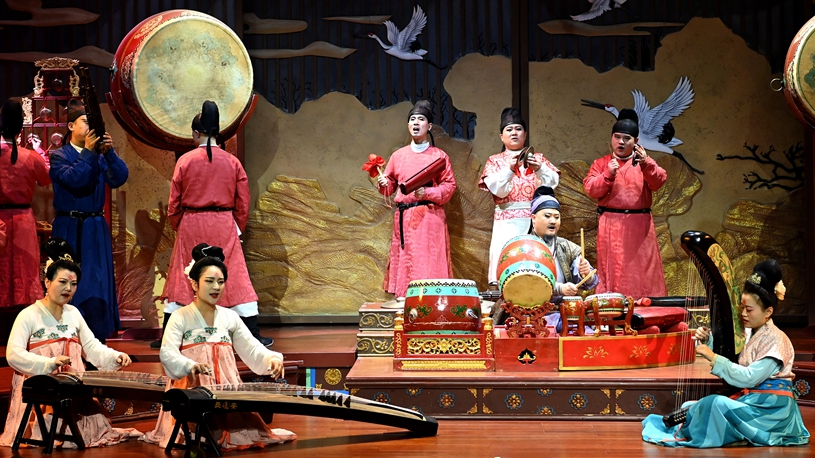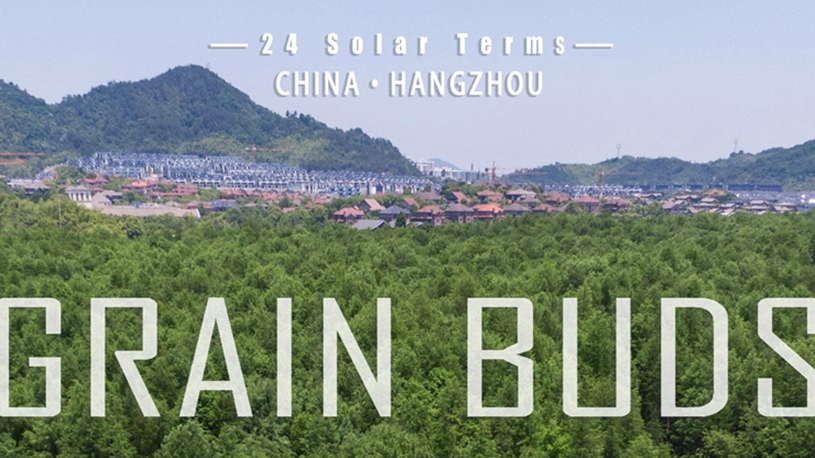TAIYUAN, May 22 (Xinhua) -- As late May arrives, the wheat grains begin to plump up, signaling the onset of the Grain Buds season also known as Xiaoman.
Grain Buds season is the eighth of the 24 traditional Chinese solar terms, with each term spanning about 15 days based on the position of the sun in the zodiac. An ancient Chinese book describes Xiaoman as the time when the seeds of the grain reach their plump stage but have not yet ripened.
With the arrival of Xiaoman, the rivers in southern China begin to rise, while in northern China, the grains of summer crops such as wheat tend to reach their full maturity.
In ancient times, Chinese people would eat bitter herbs, ride waterwheels, and worship the silkworm god during Xiaoman. They would also sprinkle bowls of water in the fields, to prepare for farming and expect a good harvest.
During the Grain Buds season, if you stroll through the fields, you would be captivated by the gentle sway of the wheat in the breeze, while the enticing aroma of ripening wheat fills the air.
"The wheat is currently in a crucial stage and a month away from being harvested," said Xing Yuxian, a farmer in Pingyao County in north China's Shanxi Province, adding that the growth is promising so far and they are expecting a bumper harvest.
Xiaoman is not only closely related to agricultural production but also rich in connotations drawn from Chinese philosophy. In Chinese, "Xiao" means little, and "Man" means full. Thus, the combination of these two characters indicates things are not full to their extreme.
Xiaoman holds immense philosophical significance within Chinese culture, exerting a prevailing influence. Chinese philosophy cherishes the virtue of moderation, while Chinese paintings emphasize the significance of empty spaces. In the eyes of common people, finding contentment is synonymous with happiness.
It can be perfectly summed up in the Chinese verse: "The best state in life lies in finding contentment with little, just like a flower not in full bloom, and a moon not fully round."
The name of Xiaoman embodies the profound philosophy embedded within the characters of Chinese people, and their approach to life. Adopting the principles of Xiaoman signifies tolerance, open-mindedness, and a modest mindset.
The system of 24 solar terms remains a significant guide for Chinese farmers in their agricultural work. The system is on the United Nations Educational, Scientific, and Cultural Organization (UNESCO) Representative List of the Intangible Cultural Heritage of Humanity. Enditem












